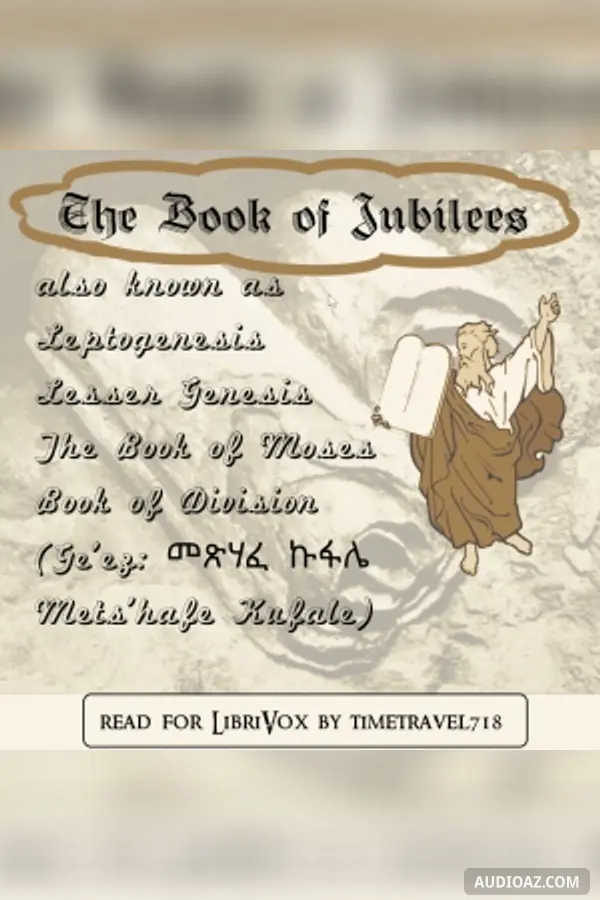
Discourses on the First Decade of Titus Livius, Book 3 - Kostenloses Hörbuch
Autor(en): Niccolò Machiavelli
Sprache: English
Genre(s): Frühe NeuzeitGeschichteSachbücherPolitikwissenschaft
1 / 49CHAPTER I.—For a Sect or Commonwealth to last long, it must often be brought back to its Beginnings.
- 1. CHAPTER I.—For a Sect or Commonwealth to last long, it must often be brought back to its Beginnings.
- 2. CHAPTER II.—That on occasion it is wise to feign Folly.
- 3. CHAPTER III.—That to preserve a newly acquired Freedom we must slay the Sons of Brutus.
- 4. CHAPTER IV.—That an Usurper is never safe in his Princedom while those live whom he has deprived of it.
- 5. CHAPTER V.—How an Hereditary King may come to lose his Kingdom.
- 6. CHAPTER VI.—Of Conspiracies.
- 7. CHAPTER VII.—Why it is that changes from Freedom to Servitude, and from Servitude to Freedom, are sometimes made without Bloodshed, but at other times reek with Blood.
- 8. CHAPTER VIII.—That he who would effect Changes in a Commonwealth, must give heed to its Character and Condition
- 9. CHAPTER IX.—That to enjoy constant good Fortune we must change with the Times.
- 10. CHAPTER X.—That a Captain cannot escape Battle when his Enemy forces it on him at all risks.
- 11. CHAPTER XI.—That one who has to contend with many, though he be weaker than they, will prevail if he can withstand their first onset.
- 12. CHAPTER XII.—A prudent Captain will do what he can to make it necessary for his own Soldiers to fight, and to relieve his Enemy from that necessity.
- 13. CHAPTER XIII.—Whether we may trust more to a valiant Captain with a weak Army, or to a valiant Army with a weak Captain.
- 14. CHAPTER XIV.—Of the effect produced in Battle by strange and unexpected Sights or Sounds.
- 15. CHAPTER XV.—That one and not many should head an Army: and why it is harmful to have more Leaders than one.
- 16. CHAPTER XVI.—That in Times of Difficulty true Worth is sought after; whereas in quiet Times it is not the most deserving, but those who are recommended by Wealth or Connection who are most in favour.
- 17. CHAPTER XVII.—That we are not to offend a Man, and then send him to fill an important Office or Command.
- 18. CHAPTER XVIII.—That it is the highest Quality of a Captain to be able to forestall the designs of his Adversary.
- 19. CHAPTER XIX.—Whether Indulgence or Severity be more necessary for controlling a Multitude.
- 20. CHAPTER XX.—How one humane act availed more with the men of Falerii, than all the might of the Roman Arms.
- 21. CHAPTER XXI.—How it happened that Hannibal pursuing a course contrary to that taken by Scipio, wrought the same results in Italy which the other achieved in Spain.
- 22. Chapter XXII.—That the severity of Manlius Torquatus and the gentleness of Valerius Corvinus won for both the same Glory.
- 23. CHAPTER XXIII.—Why Camillus was banished from Rome.
- 24. CHAPTER XXIV.—That prolonged Commands brought Rome to Servitude.
- 25. CHAPTER XXV.—_Of the poverty of Cincinnatus and of many other Roman Citizens.
- 26. CHAPTER XXVI.—How Women are a cause of the ruin of States.
- 27. CHAPTER XXVII.-- How a divided City may be reunited, and how it is a false opinion that to hold Cities in subjection they must be kept divided.
- 28. CHAPTER XXVIII. - That a Republic must keep an eye on what its Citizens are about; since often the seeds of a Tyranny lie hidden under a semblance of generous deeds.
- 29. CHAPTER XXIX.—That the Faults of a People are due to its Prince.
- 30. CHAPTER XXX.—That a Citizen who seeks by his personal influence to render signal service to his Country, must first stand clear of Envy. How a City should prepare for its defence on the approach of an Enemy.
- 31. CHAPTER XXXI.—That strong Republics and valiant Men preserve through every change the same Spirit and Bearing.
- 32. CHAPTER XXXII.—Of the methods which some have used to make Peace impossible.
- 33. CHAPTER XXXIII.—That to insure victory in battle you must inspire your Men with confidence in one another and in you.
- 34. CHAPTER XXXIV.—By what reports, rumours, or surmises the Citizens of a Republic are led to favour a Fellow-citizen: and-whether the Magistracies are bestowed with better judgment by a People or by a Prince.
- 35. CHAPTER XXXV.—Of the Danger incurred in being the first to recommend new Measures; and that the more unusual the Measures the greater the Danger.
- 36. CHAPTER XXXVI.—Why it has been and still may be affirmed of the Gauls, that at the beginning of a fray they are more than Men, but afterwards less than Women.
- 37. CHAPTER XXXVII.—Whether a general engagement should be preceded by skirmishes; and how, avoiding these, we may get knowledge of a new Enemy.
- 38. CHAPTER XXXVIII.—Of the Qualities of a Captain in whom his Soldiers can confide.
- 39. CHAPTER XXXIX.—That a Captain should have good knowledge of Places.
- 40. CHAPTER XL.—That Fraud is fair in War.
- 41. CHAPTER XLI.—That our Country is to be defended by Honour or by Dishonour; and in either way is well defended.
- 42. CHAPTER XLII.—That Promises made on Compulsion are not to be observed.
- 43. CHAPTER XLIII.—That Men born in the same Province retain through all Times nearly the same Character.
- 44. CHAPTER XLIV.—That where ordinary methods fail, Hardihood and Daring often succeed.
- 45. CHAPTER XLV.—Whether in battle it is better to await and repel the Enemy's attack, or to anticipate it by an impetuous onset.
- 46. CHAPTER XLVI.—How the Characteristics of Families come to be perpetuated.
- 47. CHAPTER XLVII.—That love of his Country should lead a good Citizen to forget private Wrongs.
- 48. CHAPTER XLVIII.—That on finding an Enemy make what seems a grave blunder, we should suspect some fraud to lurk behind.
- 49. CHAPTER XLIX.—That a Commonwealth to preserve its Freedom has constant need of new Ordinances. Of the services in respect of which Quintius Fabius received the surname of Maximus.
Über
In "Discourses on the First Decade of Titus Livius", posthumous work by the author of The Prince, Machiavelli discusses the useful lessons that could be learnt from the past for the present. As the title mentions, the subject of the work is the first ten books of Livy's Ab urbe condita, which cover the expansion of Rome from the legendary monarchy of Romulus to the end of the Third Samnite War (293 BCE). The whole work contains three books, with 142 numbered chapters - perhaps not a coincidence, since Livy's history also contained 142 books. In the third book, the author discusses how the actions of particular men made Rome great. - Summary by Leni
Kommentare
Seien Sie der Erste, der kommentiert
Es gibt noch keine Kommentare zu diesem Inhalt. Beginnen Sie die Diskussion!
Mehr entdecken
Tags: Discourses on the First Decade of Titus Livius, Book 3 audio, Discourses on the First Decade of Titus Livius, Book 3 - Niccolò Machiavelli audio, Frühe Neuzeit audio, Geschichte audio, Sachbücher audio, Politikwissenschaft audio, free audiobook, free audio book, audioaz






